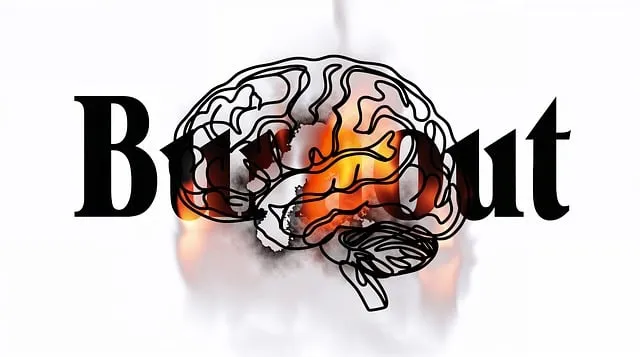Arvada Kaiser Permanente Mental Health Center emphasizes Positive Thinking Exercises (PTEs) as a key tool for enhancing emotional well-being and preventing conditions like depression. Through techniques like reframing negative thoughts, gratitude practices, and personal affirmations, individuals learn to cultivate optimism and improve their mental health. These exercises, backed by professional coaching and crisis intervention, promote emotional resilience, reduce symptoms of anxiety and depression, and contribute to a higher quality of life. Combining PTEs with other therapeutic methods at the center has shown significant and lasting results for many clients.
At the Arvada Kaiser Permanente Mental Health Center, positive thinking exercises have emerged as a powerful tool for enhancing well-being. This article explores practical strategies and real-world benefits of integrating positivity into daily routines, inspired by the center’s innovative approach.
From understanding the science behind positive thinking to navigating potential challenges, we’ll guide you through effective implementation techniques. Discover how these exercises can transform lives, fostering resilience, reducing stress, and cultivating a brighter mindset—all achievable at Arvada Kaiser Permanente.
- Understanding Positive Thinking Exercises at Arvada Kaiser Permanente Mental Health Center
- Practical Steps for Implementing Positive Thinking in Daily Life
- Benefits and Potential Challenges of Positive Thinking Exercises
Understanding Positive Thinking Exercises at Arvada Kaiser Permanente Mental Health Center

At Arvada Kaiser Permanente Mental Health Center, Positive Thinking Exercises (PTEs) are integral to promoting emotional well-being and preventing conditions like depression. These exercises focus on cultivating a positive mindset through various techniques that enhance self-awareness. By engaging in PTEs, individuals can learn to reframe negative thoughts into more constructive and optimistic ones, thereby improving their overall mental health.
The center offers a range of activities designed to help patients develop coping strategies that foster emotional resilience. These exercises encourage active participation, enabling individuals to take control of their mental health journey. Through regular practice, PTEs at Arvada Kaiser Permanente Mental Health Center aim to not only alleviate symptoms but also promote a deeper sense of fulfillment and happiness in daily life.
Practical Steps for Implementing Positive Thinking in Daily Life

Implementing positive thinking in your daily routine can significantly enhance overall well-being, and the Arvada Kaiser Permanente mental health center is a valuable resource for learning and practicing these strategies. Here are some practical steps to get started:
1. Identify Negative Thought Patterns: Pay close attention to your self-talk and recognize recurring negative thoughts. These could be related to work, relationships, or personal struggles. By identifying them, you begin to gain control over your mental space. For instance, instead of dwelling on a mistake, consider reframing it as a learning opportunity.
2. Practice Gratitude: Incorporate gratitude into your daily routine by keeping a gratitude journal or simply setting aside a few moments each day to reflect on the positive aspects of your life. This simple act can shift your focus from what’s lacking to what’s abundant, fostering a more optimistic outlook. The Mental Wellness Coaching Programs Development offered at Arvada Kaiser Permanente provides guidance on cultivating gratitude practices for better mental health.
3. Challenge Negative Thoughts: When you notice negative thoughts creeping in, challenge them by asking yourself if they are based on facts or just assumptions. Replace these thoughts with more realistic and positive alternatives. For example, instead of thinking, “I always mess things up,” try, “I’ve overcome challenges before, and I can handle this too.”
4. Use Positive Affirmations: Create personal affirmations that resonate with you. Repeat these affirmations daily to reinforce a positive mindset. Statements like, “I am worthy of love and success,” or “I embrace challenges as opportunities for growth,” can be powerful tools in reprogramming your mind. The Crisis Intervention Guidance provided by Arvada Kaiser Permanente offers strategies for using affirmations effectively during difficult times.
5. Surround Yourself with Positivity: Fill your environment with positive influences, whether it’s through uplifting media, inspiring books, or supportive friends and family. Positive communication strategies are a key aspect of fostering healthy relationships, which in turn contribute to mental wellness.
Benefits and Potential Challenges of Positive Thinking Exercises

Positive thinking exercises have been shown to offer a multitude of benefits for mental health and overall well-being. These practices, often encouraged at centers like Arvada Kaiser Permanente Mental Health Center, can enhance emotional healing processes and promote resilience in individuals dealing with stress and anxiety. By cultivating positive thoughts and reframing negative ones, people may experience improved emotional intelligence, leading to better coping mechanisms and enhanced quality of life. Research suggests that consistent engagement in such activities can reduce symptoms of depression and even provide anxiety relief, making them valuable tools for those seeking mental health support.
However, implementing positive thinking exercises is not without challenges. Some individuals might find it difficult to shift their mindset or struggle with skepticism about the effectiveness of such approaches. It’s important to approach these practices as part of a comprehensive emotional healing process, understanding that they may not offer instant solutions but rather gradual transformations. With patience and persistence, many have found success in combining positive thinking with other therapeutic methods, such as cognitive-behavioral therapy or mindfulness exercises, for more profound and lasting results, ultimately enhancing their journey towards improved mental health at centers like Arvada Kaiser Permanente Mental Health Center.
Positive thinking exercises, as practiced at Arvada Kaiser Permanente Mental Health Center, offer a powerful tool for enhancing well-being. By integrating these strategies into daily life, individuals can experience improved mental resilience and overall satisfaction. While challenges may arise, the benefits of cultivating a positive mindset are significant. Through practical steps outlined in this article, readers are equipped to embark on their own journey towards a more optimistic and fulfilling life, mirroring the transformative power witnessed at Arvada Kaiser Permanente.






